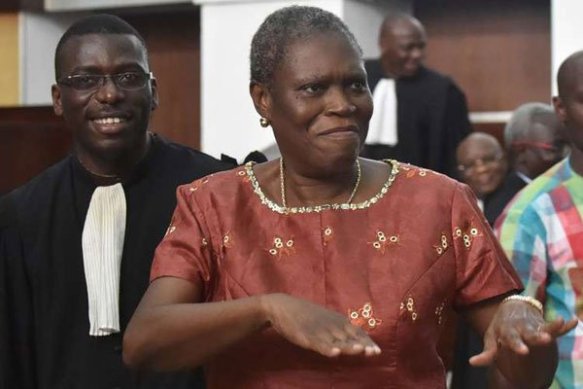Editor’s Note: Beyond The Hague is delighted to publish this review (in French) of the International Center for Transitional Justice (ICTJ) Handbook on Complementarity by Traoré Drissa, a human rights lawyer in the Cote d’Ivoire who assesses the complementarity issues at play in his home country, and how the handbook can assist national structures. An English version is available here.
Note de la rédaction: Beyond The Hague est heureux de publier cette revue du Guide de la complémentarité préparer par le Centre international pour la justice transitionnelle (ICTJ). L’auteur est Traoré Drissa, avocat des droits de l’homme en Côte d’Ivoire, qui évalue les questions de complémentarité dans son pays, et comment le Guide peut aider les structures nationales.
Par Traoré Drissa, Avocat au Barreau d’Abidjan, Vice-Président de la Fédération Internationale des Ligues des Droits de l’Homme (FIDH)
Le renforcement des systèmes judiciaires nationaux constitue le gage de l’efficacité de la lutte contre l’impunité et de la prévention des crimes les plus graves. Cependant en raison de la défaillance des juridictions nationales, lors de conflits armés de grande ampleur, les Etas ont décidé de la création de la Cour Pénale Internationale (CPI).
 Simone Gbagbo at opening hearing of trial for crimes against humanity (photo: AFP)
Simone Gbagbo at opening hearing of trial for crimes against humanity (photo: AFP)
L’ouvrage préparé et publié par le Centre International pour la Justice Transitionnelle (ICTJ) intitulé « Guide de la complémentarité » permet aux professionnels et aux moins avertis de pouvoir comprendre le fonctionnement de la CPI et surtout sa relation avec les juridictions nationales, dans le cadre cette lutte contre l’impunité.
Il permettra de faire tomber certaines barrières notamment l’accusation portée contre la CPI par une certaine opinion africaine qui la taxe d’être un instrument « néocolonial » ou de domination des peuples africains par l’occident. Le lecteur comprendra aisément que la CPI, organe international de lutte contre l’impunité ne peut trouver de compétence qu’en raison de la défaillance des juridictions nationales. En d’autres termes si les juridictions nationales font leur travail, la CPI ne pourra pas intervenir.
Expérimentation de Modes de Justice internationale : des tribunaux ad hoc à la CPI
L’on doit retenir que les situations de conflits internationaux et même de confits internes ou aujourd’hui asymétriques (terrorismes…) ont donné lieu à l’expérimentation de diverses méthodes de justice. Les Tribunaux ad ’hoc et spéciaux ont été mis en place. L’on est passé des Tribunaux de NUREMBERG et de TOKYO après la deuxième guerre mondiale au Tribunal Pénal International (TPI) pour le RWANDA et celui pour l’ex-YOUGOSLAVIE ainsi que le Tribunal Spécial pour la Sierra-Léone et récemment les Chambres africaines extraordinaires instituées par l’Union Africaine auprès de la Justice Sénégalaise pour juger l’ancien Président Tchadien Hissène Habré.
La particularité de ces juridictions ad ‘hoc était de connaitre d’infractions graves commises avant leur institution. Elles avaient une primauté sur les juridictions nationales pour les faits dont elles étaient saisies c’est–à-dire si une juridiction nationale se trouvait saisie simultanément avec l’une de ces juridictions ad ‘hoc selon leur sphère de compétence, la juridiction nationale devait se dessaisir à leur profit.



